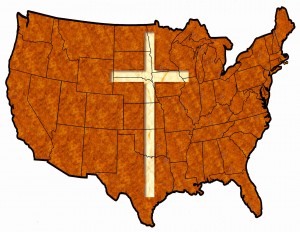 A federal appeals court has reversed an injunction against Mississippi’s Protecting Freedom of Conscience from Government Discrimination Act, a bill meant to protect residents from punishment when acting in accordance with their religious convictions in regard to the institution of marriage.
A federal appeals court has reversed an injunction against Mississippi’s Protecting Freedom of Conscience from Government Discrimination Act, a bill meant to protect residents from punishment when acting in accordance with their religious convictions in regard to the institution of marriage.
The Fifth Circuit Court of Appeals in New Orleans, Louisiana ruled on Thursday that the plaintiffs who filed the legal challenge did not have standing to sue because they could not demonstrate any actual harm created by the law. It said, however, that the matter could be considered if and when an actual incident occurs.
“[T]he plaintiffs have not shown an injury-in-fact caused by H.B. 1523 that would empower the district court or this court to rule on its constitutionality,” the three-judge panel wrote.
“We do not foreclose the possibility that a future plaintiff may be able to show clear injury-in-fact that satisfies the ‘irreducible constitutional minimum of standing,’ but the federal courts must withhold judgment unless and until that plaintiff comes forward,” it said.
The 13 plaintiffs, which included Joshua Generation Metropolitan Community Church, had argued that the law sends a “clear message” that the “state government disapproves of and is hostile to same-sex couples, to unmarried people who engage in sexual relations, and to transgender people.”
As previously reported, the Act was signed into law last April by Gov. Phil Bryant, who identifies as a Christian. The bill prohibits the government from punishing those who decline to officiate same-sex ceremonies or provide services or accommodations for the celebrations, as well as those whose policies require use of locker and restrooms consistent with their biological gender.
It does not permit persons to refuse service in general, but only to decline forms of personal participation in events that conflict with their faith.
The American Civil Liberties Union (ACLU) filed a legal challenge, which was later joined by others. In June 2016, U.S. District Judge Carlton Reeves struck down part of H.B. 1523, while leaving the rest of the law intact.
Focusing on the officiation portion of the legislation, he issued an order stating that all 82 county clerks must issue same-sex “marriage” licenses to homosexuals despite their religious beliefs, opining that an opt-out would run contrary to the U.S. Supreme Court ruling of Obergefell v. Hodges.
“Having reviewed the relevant section of HB 1523, the parties’ arguments, and the scope of the Supreme Court’s ruling in Obergefell, the Court finds that (Section) 3(8)(a) may in fact amend Mississippi’s marriage licensing regime in such a way as to conflict with Obergefell,” Reeves wrote.
“Mississippi’s elected officials may disagree with Obergefell, of course, and may express that disagreement as they see fit—by advocating for a constitutional amendment to overturn the decision, for example,” he said. “But the marriage license issue will not be adjudicated anew after every legislative session.”
The state appealed, and this week, the Fifth Circuit Court of Appeals vacated Reeves’ injunction.
“The state communicated a message loudly and clearly with the passage of HB 1523: Only certain anti-LGBT beliefs will get the protection and endorsement of the state,” Roberta Kaplan, an attorney representing some of the plaintiffs, told the Associated Press following the ruling. “Under the logic of this opinion, it would be constitutional for the state of Mississippi to pass a law establishing Southern Baptist as the official state religion.”
Religious liberties groups, however, cheered the development.
“The court did the right thing in finding that those who have challenged this law haven’t been harmed and, therefore, can’t try to take the law down,” said Alliance Defending Freedom (ADF) Senior Counsel Kevin Theriot in a statement. “The sole purpose of this law is to ensure that Mississippians don’t live in fear of losing their careers or their businesses simply for affirming marriage as a husband-wife union.”
“Those who filed suit have not and will not be harmed but want to restrict freedom and impose their beliefs on others by ensuring dissenters are left open to the government discrimination that has already occurred in states without protective laws like this one,” he said.
Attorneys for the complainants vowed to appeal.
Become a Christian News Network Supporter...


